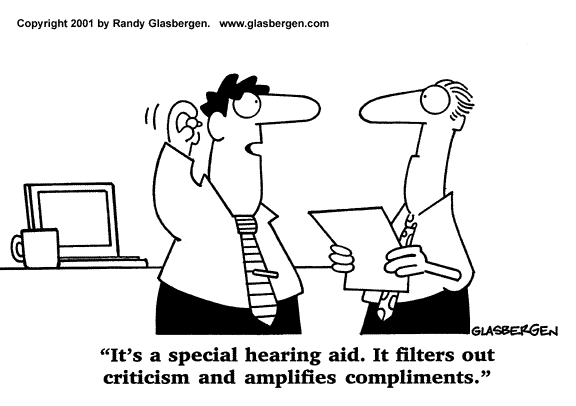NBR Comment Tips
Written by: ChayAvalerias,The3dreamers, mokbook & Dawnstarling
How to Review for #NBR
For many, writing a review may seem daunting. Not everyone starts out as a star reviewer. It takes practice and sometimes a bit of trial and error, but to help you embark on your reviewing journey Our Champion Reviewer, Triple Crowner & Board Member ChayAvalerias, Triple Crowner & Board Member The3dreamers, NBR Moderator & Triple Crowner mokbook, and NBR Founder and Moderator Dawnstarling have put together a comprehensive guide.
Be Aware of Your Critic's Voice
Before we get into specifics about how to write a review, let's define what we mean by a review. At #NBR, we prefer the word review instead of critique. Critiquing almost always implies being a critic, which usually involves criticizing, evaluating, and finding flaws in something.
In contrast, a review presents strengths, weaknesses, and possibilities for the manuscript. Reviews serve to support the author. Nonetheless, sometimes our critic's voice can flare up into our reviews. Here are some strategies to avoid being a critic.

1. Focus on the Assignment, NOT the genre. This is one of the most important rules you must abide by. In NBR, you will read genres you may not like or be familiar with. To avoid biases, it's important to focus on the Authors' questions, not the genre. Doing so will help you remain openminded, thus ensuring you put forth the most fair review for your fellow NBR member.
2. Use a kind tone. Sticks and stone may break your bones, but words can destroy your confidence in writing! Writers have left this community because of the tone in the reviews they received. #NBR is about community and writers helping writers. So, please use phrases like "might consider" instead of "must do" or "I wasn't sure about this" instead of "your writing was confusing." When we are in a rush our words can convey a message that might be more harsh than we intended. So, review with patience, kindness, and generosity. Write with a smile on your face and let your review emanate from there.
As equally important is your tone when replying to the author or discussing with fellow members about an author's work. Remember that the author may be under a lot of pressure and stress. Your tone, language and words can either positively or negatively affect them. Bottom line: be thoughtful and considerate.
3. Get to know the author. We encouraged that you visit the author's profile to learn about who you are writing a review for. Doing so humanizes the reviewing process. Keep in mind that behind every screen is a person. Please consider VOTING on the chapter you review.
4. Praise where praise is due. Knowing what worked well in a chapter is just as important as finding out what didn't. By providing your reasons why you liked something, you're helping the writer better understand what to keep or change. Remember the spotlight can be daunting so offering positive feedback can help ease tension and prevent your fellow member from feeling hurt.
5. Comment on specifics about the chapter, not on the author. Mature writers know that a manuscript is just that, a manuscript. Reviewers ought to acknowledge the chapter as a work in progress. (Some say all writing is still in draft form!) So, be constructive about the chapter, not destructive about the writer.
6. Keep an open-mind when reviewing. Being open-minded involves accepting the submission as is and diving into the review with a spirit of support. You might not like the genre or even the location of the chapter in the book. That's okay. Remember authors selected their chapters for specific purposes. Regardless of their reasons, do not question or criticize their choice or genre.
If you have to review a genre you loathe, simply focus on the author's questions and comment topic. Keep your review objective and free of biases.
What Makes a Good Review?
At NBR, we take pride in having both the best writers AND the most talented reviewers on Wattpad. We want to maintain quality reviews with in-depth, constructive feedback. We believe reviewers get just as much as writers do from being reflective about a chapter.
When reviewing chapters our winners and Triple Crowners have their own unique approaches. While there isn't a perfect method, we have some strategies to help you write a solid review.

Steps to Creating Quality NBR Reviews:
1. Greet the author and give her/him a general impression of the work. Was the story captivating from the very first paragraphs? Did you enjoy reading it? What type of person would this book appeal to?
2. Give constructive feedback. The purpose of writing a review is twofold: (1) identify strengths and weaknesses in the piece and (2) offer some constructive advice to the author that might lead to improvement in the story.
3. Explain your point. Any time you make a suggestion for the author to consider (Ex: I really didn't "feel" this character.), please give details in your explanation so the writer knows exactly what you mean. (Ex: I wanted to see more of her emotions when the boyfriend dumped her.)
4. Provide examples of improvements, if possible. Rather than writing you felt the story needed more "showing," point out where the author can add more detail and offer suggestions for consideration. For example: The scene when the two young lovers break up, I felt it needed more showing. Maybe writing a sentence to focus more on what's happening would help. Something like, "Her face instantly fell as he took off her class ring, which hung on the golden necklace she gave him for Christmas."
5. Answer the author's questions. Authors craft their questions to draw attention to areas they want feedback on. Please do not ignore their questions. (Of course, a stellar review does so much more than just answer a series of questions.)
6. Remember to respond to the moderator's Comment Topic of the week. (Posted near the top of the round.) The moderators design the comment topic to be thought-provoking and to spark deeper analysis.
These strategies will help ensure you write a solid review. On average, most members spend 30–45 minutes on a single spotlighted author, which is enough to complete a review. But if you want to earn a crown... Consider that our Triple Crown and Champion Reviewers often spend 3–6 hours writing one review. At the end of the day, it's up to you how much effort you exert or even if you want to wear a crown!
Of course, in addition to the time commitment, successful reviewers are also smart readers. Even a short review can be full of valuable content. (And the reverse is true: A long review can lack substance.) Offer a winning review by thinking outside the box.
Strategies to write rockin' reviews:
1. Proof-read to avoid misunderstandings. We've all proof-read for grammar, but we should also consider how our review might be perceived when it's read. Remember the author can't see your face or hear the humor in your voice. (Did you remember to add some positive comments about the chapter also?)
2. Be considerate with in-line posts. Some reviewers swear by in-line posting. These suggestions work best when the author writes and edits with a tablet or phone. However, keep in mind not all writers can see your in-line posts, especially if they are accessing Wattpad only with their desktop. For desktop users, in-line comments appear in notifications without your highlighted section of text, making your comment difficult to decipher. So, please write a full review for every chapter. If you want to make an in-line comment and are not sure of the author's preference, consider adding some context in your comment (e.g., The word tall doesn't seem to fit Squat's character description.)
3. Grammar, grammar, grammar! Different writers want different things from the review process. Some seek global comments about the theme, mood, characterization, etc. Others really want good solid grammar or stylistic advice. When giving grammar advice, first make sure your grammar correction is accurate, research your recommendations if needed. (Note that writers from different countries will have different grammar conventions.) Giving wrong grammatical advice defeats all the effort you've put forth to help the author. Second, if several reviewers have noted the same typographical or grammar error, it doesn't need to be pointed out again.
4. Draw on what you know. Ever read a book about writing or seen a Youtube video of Stephen King talking about his methods? Don't be afraid to bring in some of these ideas into your review. Many winners and Triple Crown reviewers make it a point to learn more about the craft of writing as they write their comments. But, the insights you share can also come from your own experience. For example, in one round a reviewer offered feedback about the setting for a chapter that took place in the city they lived in. In another round, one reviewer explained some of the details of a crime scene based on prior experience working with police.
What to Look For When Reviewing
When reviewing a chapter, always attend to the author's questions and the moderator's topic; however, many times reviewers spot things that the author didn't ask about. Giving a review that addresses deeper aspects of the chapter can really provide extra insights that the writer may not have considered.
Given the myriad of things to review, we offer some guidance based on James Scott Bell's Revision and Self-Editing for Publication. When reviewing, you might ask some of the following questions about the chapter:

Characters:
Is the lead character interesting and worth the reader following throughout the novel?
Does the character "jump off the page"? If so why or how? If not, why not?
How much does the reader know about the character from the chapter?
Plot:
Does the story/plot grab the reader's attention?
Is the story action-based? Can the readers feel like things are happening in the chapter?
Does the plot flow naturally or does it seemed rushed or forced?
Does the chapter have a nice balance of action and reaction, physical action and mental action?
Scenes:
Does the chapter have conflict and tension in every scene?
Is it clear who the viewpoint character is in each scene?
Do the scenes transition well?
Does each scene have a central action and is significant to the plot?
Voice, Style, and Point of View:
Does the writing flow/ feel forced? Can it be read aloud smoothly?
Is the POV consistent in every scene?
Does the chapter have head-hopping?
Dialogue:
Is it essential to the story?
Does it have conflict or tension?
Does it sounds just right for each character?
Is it rich with subtext?
Is it realistic when read aloud?
We hope that this list provides a good starting point for beginning a review. Good luck and remember, we all get better with practice!
Round 85 & 86 Homework:
Thank you for reading this entire chapter. Now to show that you have indeed completed the NBR homework assignment ;) please post a comment below about your biggest reviewing flaw and address how you will improve it.
NBR is a high quality benchmark contest on WP. This Homework is NOT optional. It is a Requirement.
* Comment tips chapter will continue to be updated *
Bạn đang đọc truyện trên: AzTruyen.Top